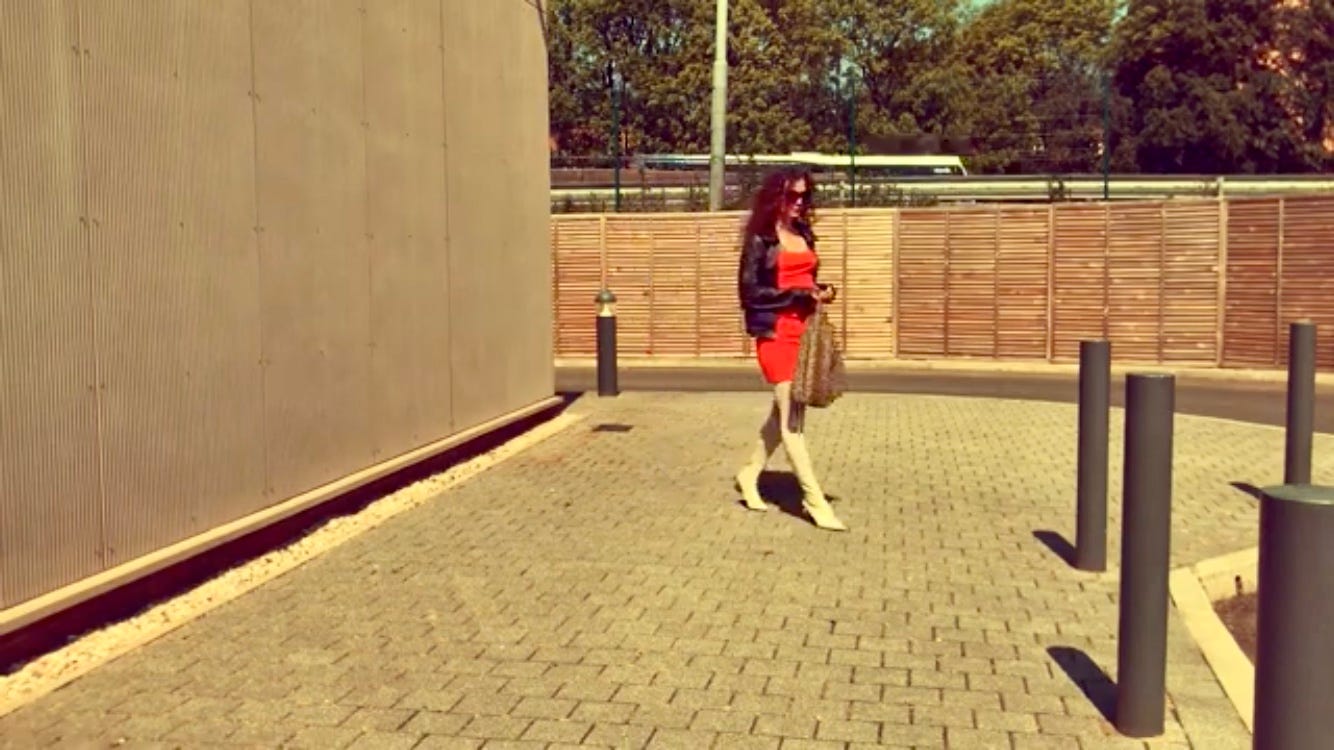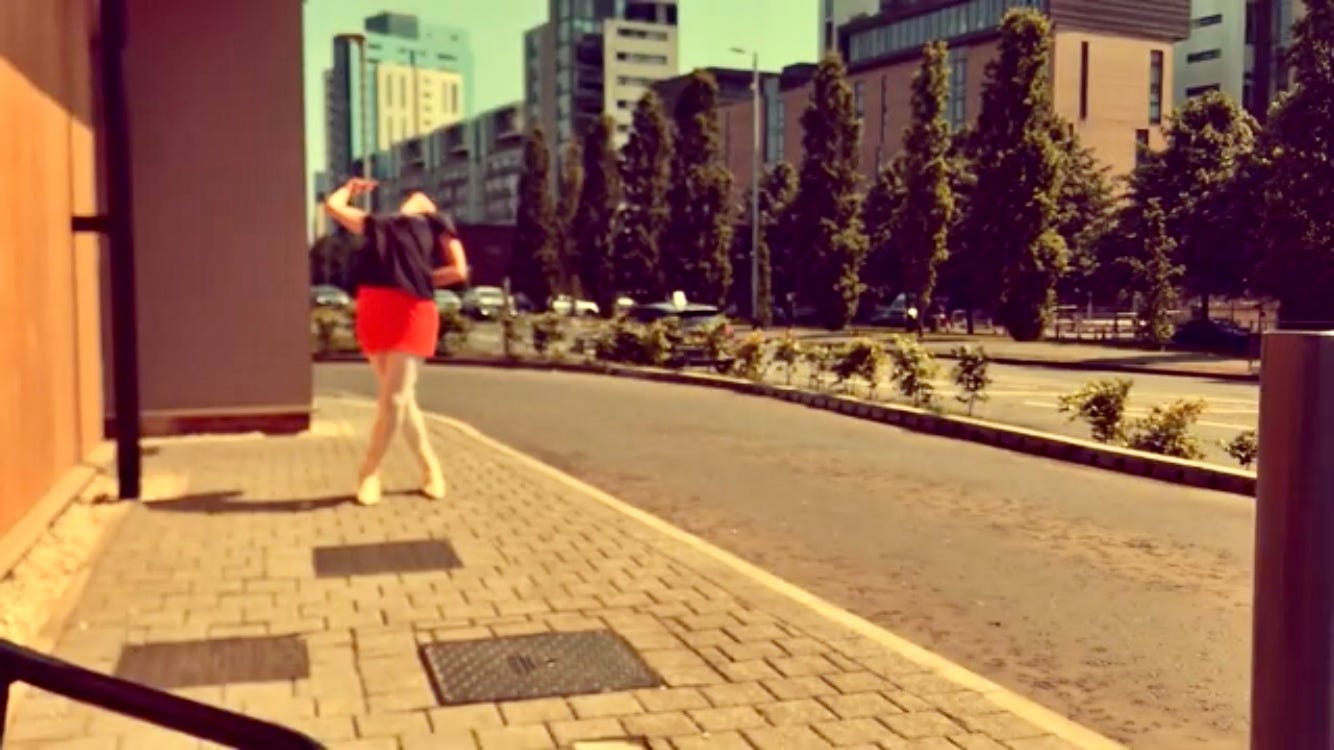A friend put it to me recently on discussing my being an artist with no audience still talking to herself online: “You’re going around in circles, Sam.”
He’s right.
The ‘slow productivity expert’, Cal Newport, Computer Science professor on The New York Times Bestseller list has forged a niche by not using social media, or perhaps, not needing to (let us be clear social media is for the disempowered). He recently advised a caller on his podcast who was concerned about the amount of time he was posting ‘content’ online not to post anything that did not bring in remuneration.
The title of this post is based upon Prince’s recording methods and hyper-productivity through my researching interviews with musicians/sound engineers who worked with him. Prince was an exemplar of an artist who valued the energy and integrity of the first-take. Compelled by the energy inherent in these initial performances, what we hear is a song coming into being as opposed to being replicated, polished, or reproduced to death.
This rationale speaks to Bruce Springsteen’s infamous album Nebraska (1982)1. The E Street Band tried many times to replicate the magic of the first-take but in the end, gave up. Springsteen famously recorded these demos alone in a hotel room on his four-track recorder with the intention of them being re-recorded by the band but that didn’t happen. Instead, the demos became the definitive version.
Tal Wilkenfeld, the Australian bassist and singer-songwriter in conversation with American chat show host Lex Fridman, uncovers more anecdotes upon Prince’s recording ethos and his proclivity towards risk-taking. He was the first person to hold her hand, as she tells it, whilst she walked to the edge, getting her to solo her way through a song they recorded in which she had no idea where she was going.
He wanted to retain the emotion held in the first take as much as he wanted to hear it in the records he would listen to. He also wanted to make a new moment in time, each time. This aesthetic attitude and ethic is an antidote to the homogeneity of algorithmic culture in which we find much music sounding the same. It also overrides the inevitability of the polished commercial release. Even Prince opted to leave errors in if they worked.
But polished is what sells.
Not that Prince wasn’t commercial, or Nebraska didn’t sell. Prince knew exactly what he was doing. He retained a rare kind of creative control, choosing who he worked with carefully. He would even play for hours on soundchecks when other artists would save their energy for later. If he was on stage, he was on.
Even after re-recording numerous takes, he tended to opt for the first one or he’d be done with the one take and anyone else working with him would just have to get their heads around his urgency in the studio, as Wilkenfeld recalls: “I would say 80 per cent of the time take one has the most gold … but all the magic is in that take” (Lex Clips, 2024, 04:02-04:20).2
Wilkenfeld cites Prince ordering her not to ‘punch that in’, which is studio parlance for correcting something which might have been anticipated but which didn’t happen when recording the song. For example, segueing into a second verse in the right way, at the right time. She remembers him saying that all his favourite records were a moment in time, let’s make a new moment in time, to which she laments, “nobody makes records like that anymore” (Lex Clips, 2024, 07:15).3 But what if people do? They just don’t get heard.
We spend much of our time distracting ourselves from ourselves, checking our stats, and doing all else on tiny screens whilst doing something else. Digital platforms have flattened reality and we are faced with the persistent sameness of algorithmic culture and the sense of having no time, or the “relentless capture and control of time and experience” (Crary, 2013, p.40).4 Moreover, with an ever-proliferating quota of cookies to accept or block, ads to avoid and perennial pop-ups to chase around the screen, the UX is an increasingly clunky one. Ad blockers will only take us so far. The haptics of endless swiping coupled with the ‘cult of smoothness’ epitomised by the iPhone or “the art of the smooth”5 as Han (2018) terms it, drawing his aesthetics of the smooth back to Edmund Burke (1729-97) on the Sublime.
In his criticism of beauty as the aesthetic dimension of capitalism, Han posits that smoothness “abolishes … distance” (2018, p.2). We navigate our desires via our fingertips, flicking, this way and that, pressing possible futures or lingering upon possibilities. Our fingertips know how much pressure to apply for the desired result.
This cover of Prince’s “Nothing Compares to You”6 is part of my YouTube series Sam Lou Covers. It was recorded on a Rode NT1 on my kitchen table using a Yamaha guitalele. I recorded this on hearing the sad news of the Irish singer-songwriter Sinead O’Connor’s untimely passing.
*All images are extracted from the self-directed performance music video, “Volcano” (Sam Lou Talbot, 2024b)7, which is track five8 (Talbot, 2023d) on Space Junk in the first piece, Fire Pouring. I performed and recorded the video in an impromptu fashion on an iPhone outside the Starbuck’s Drive-Thru, in Glasgow.
Bruce Springsteen. 1982. Nebraska. [CD]. US: Colombia Records.
Lex Clips. 2024. Prince recorded in one take. Tal Wilkenfeld and Lex Fridman. [Online]. [Accessed 20 May 2024]. Available from: http://www.youtube.com/watch?v=Wb3wqxYn1aw
Lex Clips. 2024. Prince recorded in one take. Tal Wilkenfeld and Lex Fridman. [Online]. [Accessed 20 May 2024]. Available from: http://www.youtube.com/watch?v=Wb3wqxYn1aw
Crary, J. 2013. 24/7: Late capitalism and the ends of sleep. London: Verso.
Han, B. 2018. Saving beauty. Translated by D. Steuer. Cambridge: Polity Press.
Sam Lou Talbot. 2023e. Nothing compares 2 U by Prince. [Online]. [Accessed 9 August 2023]. Available from: https://youtube.com/watch?v=2snFKTPcX2M
Sam Lou Talbot. 2024b. Volcano. [Online]. [Accessed 1 June 2024]. Available from: https://youtu.be/MqV1o6Rt2OI
Talbot, S.L. 2023d. Volcano. Sam Lou Talbot. Space junk. [Online]. Glasgow: Sam Lou Talbot. [Accessed 12 October 2024]. Available from: https://www.samloutalbot.bandcamp.com/track/volcano








Unique selling points are probably essential to getting paid (unless famous). The marketing problem is always (1) the lack of a ready-made audience for really new stuff that is unfamiliar and thus ignored by Joe Public, and (2) the swamping by ready-made competition when trying to cater to an established market. Marketing is political: the rivals who have big fan clubs can put out relative garbage and still remain in business for a surprisingly long while. This is also a serious problem in fundamental physics, where nonsense hardens into an orthodoxy that's defended literally to the death by duped lunatics.
I think social media is useful even if you don't get immense attention, because at least you are putting stuff out there and get the feeling of being free to publish. It is also useful to motivate writing anything at all in the freelance journalistic environment where >90% of external submissions are spiked after a glance, in favour of inhouse journalists.